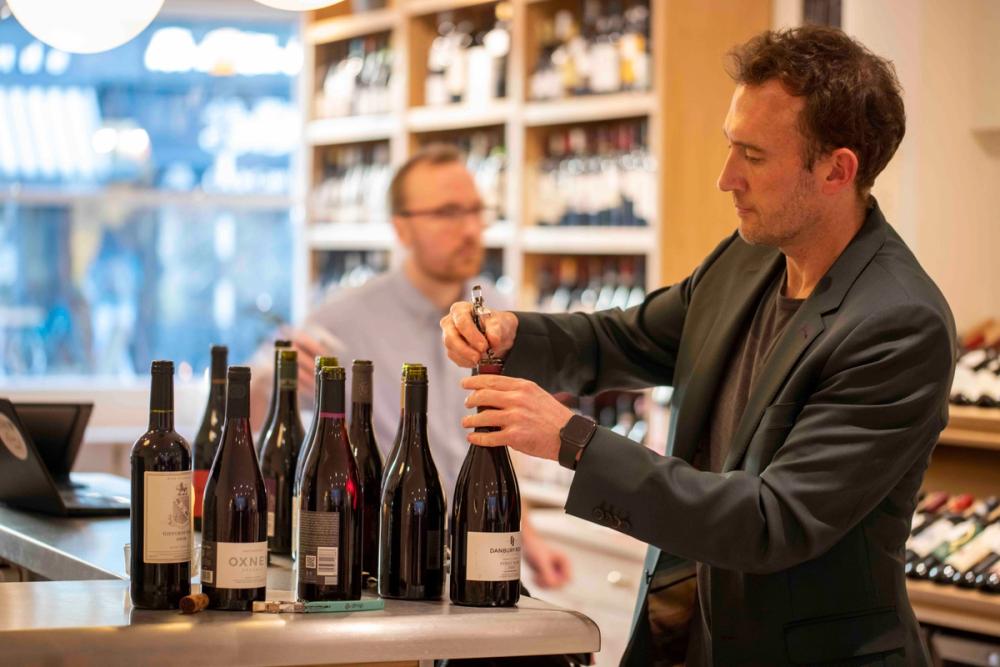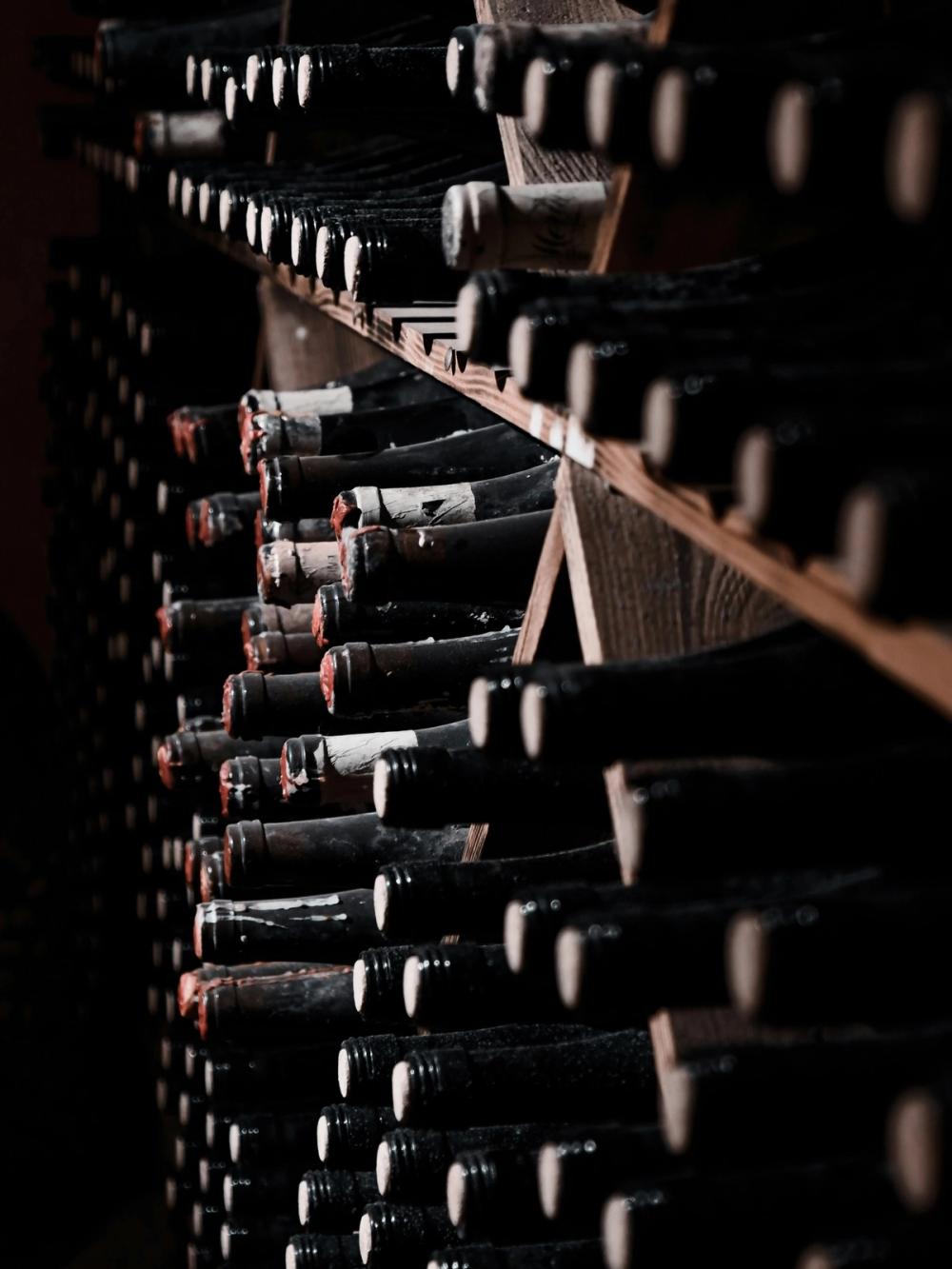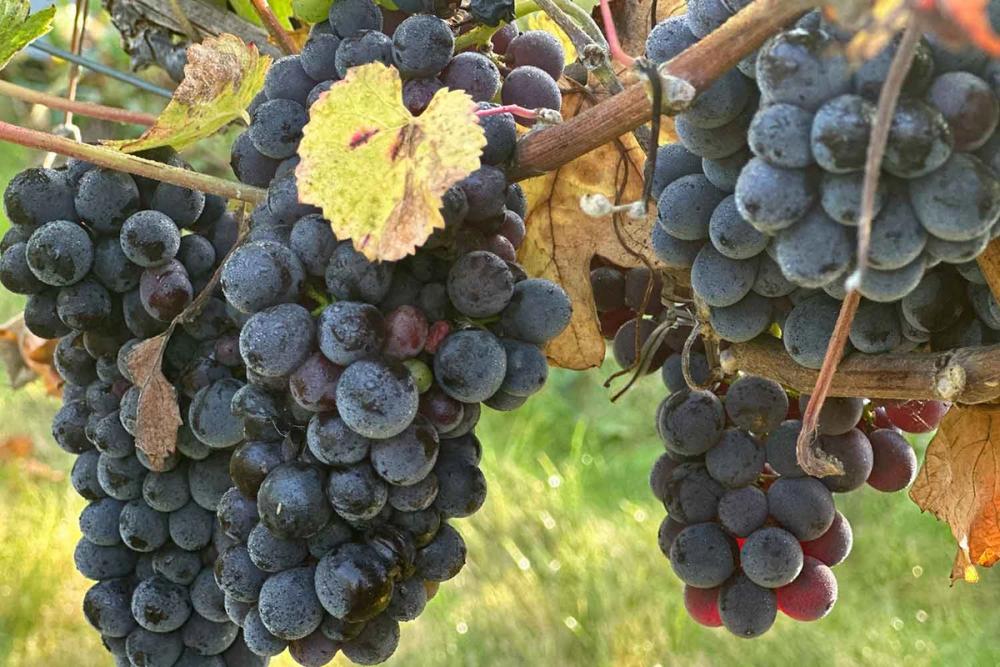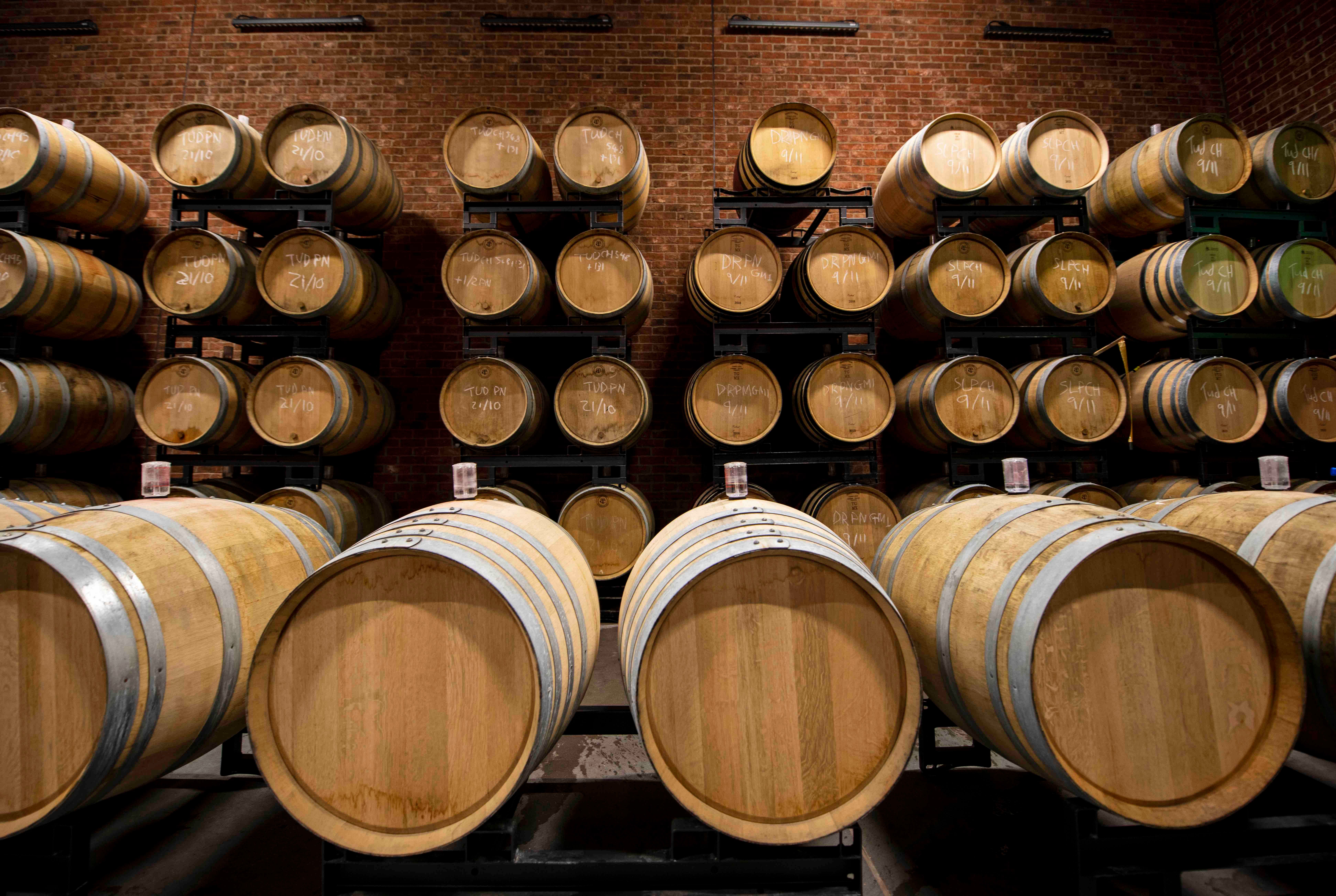At Marasby’s regular intro to English wine tastings, one of the most asked questions is whether it is possible to age English wine.
Wine lovers will know that certain wines can be held onto for years, during which time they will age and improve. These wines can come from all over the world, including from countries as diverse as France, Italy, USA and Australia.
So, where does England fit into this picture? With 70% of English vineyards planted in the last 10 years, England simply hasn’t had the chance to develop a substantial track record of producing age-worthy wines.
This doesn’t mean that they don’t exist. It’s just that well-aged English wines are few and far between. We will necessarily have to make an educated guess about whether there are English wines that have the quality and necessary attributes to age as well as those from other countries. To understand this, you’ll first need to understand why people might want to ‘age’ a wine in the first place.
Why would you want to age a wine?

Marasby's Simon Huntingdon is excited about the potential of aged English wine
Not all wine is capable of ageing well. The typical dry white wine you might order at a pub or pick up at the supermarket has likely been designed to be consumed within a year or two of its vintage – while its fruit is still as fresh and as vibrant as possible.
Like all wines, these simple dry whites will certainly change with age – typically becoming more golden in colour and nuttier in taste. However, age won’t improve them – they’ll simply lose whatever fruit character they had and become unbalanced and unpleasant to drink.
For wines that are capable of ageing – such as good quality red wines from Bordeaux or Piedmont – age does improve them. Whereas these wines can be tough and overtly tannic in youth, a few years spent in a temperature-regulated cellar will see them soften, become velvety smooth, and take on greater layers of savoury depth and complexity.
Those who have the patience and facilities to hold onto these wines would tell you that there is nothing like a well-aged bottle from the cellar for the ultimate fine wine experience. These people regularly buy bottles that they don’t intend to consume for years, happy in the knowledge that when they do finally come to drink the wine, it will be even more delicious than when they first bought it.
Quality
Purchasing wines and holding onto them for years is therefore an investment – both in the money you sink into a wine that you don’t intend to drink for several years, and in the time you sink into ageing it. As a result, only certain wines could be deemed of sufficient quality to justify the investment.
There is no question that England has the potential to produce high quality wines. Having consistently beaten Champagnes in international tasting competitions, English sparkling wine is now considered a world-class style in its own right.

Ben Walgate of Walgate Wines believes English wine "offers an ageing horizon akin to Northern Burgundy of another era"
Ben Walgate of Walgate Wines who specialises in low intervention English wines is quite clear: "I think the ageing potential of English still wine is overlooked. With our extended mild growing season, the wines can have great phenolic maturity and with balanced acidity offer an ageing horizon akin to Northern Burgundy of another era."
English still wines too have come on tremendously in quality in recent years. While they’re yet to achieve the acclaim and export success of their sparkling counterparts, the best examples have serious levels of depth and complexity.
From a quality point of view, therefore, there certainly are English wines that one might wish to hold onto and age.
What determines if a wine can age well?
So English wines have the quality to justify the investment – but do they have the attributes needed to age well?
Unfortunately, there is no hard and fast science that determines whether a wine has the capacity to improve with age. However, there are a few things to look out for that might help you to make an educated guess.
The first is whether a wine is made from a grape variety that has a track record of ageing. For example, we know that white Burgundies (made from Chardonnay) can age well, and that there are many examples of Pinot Noirs grown around the world that can be aged. So if you’re trying to work out if you can age a particular English wine, you should consider the grape(s) used to make it.
Second is whether a wine is made in a style that’s likely to age well. The two key attributes to look out for are: a backbone of firm tannins in the case of red wines, and distinct (but balanced) acidity in the case of white and sparkling wines. Both tannin and acidity seem to have a preservative effect, allowing the wines to age and improve.
The last thing to consider is vintage. Well-balanced wines from good years like 2018, 2020 and 2022 are more likely to age well in comparison with those from less-favoured English vintages like 2019 and 2021. Some delicious wines were made in those poorer years, but these will probably need to be consumed sooner rather than later.
Walgate adds: "Vintage variation is a significant consideration, to the same extent it used to be in famous regions in France. Though with advances in viticulture and oenology these differences are whittled down to a couple of points."
Unfortunately, guidelines around grape variety, style and vintage are not definitive. Some tannic wines lose their fruit character long before their tannins become silky. Some high-acid wines simply stay acidic. The best guide to whether a particular wine will age well is if it has a track record of ageing well in the past – which of course English wines can’t have!
So, can you age English wine?

Only by putting bottles away in the cellar will producers and merchants know how well we can age English wine
There’s no way at this stage of the development of the English wine industry to definitively answer the question. The only way to know for sure whether a particular English wine will age well is by tucking a few bottles away and finding out for yourself.
Having said that, we can use the guidelines we have identified above, and look at certain English wines that we think it will be worth tucking away.
English Sparkling Wine
Of all the wines now being produced in England, it is English sparkling wines that have the best track record of ageing well. With England’s naturally brisk acidity, it is not unusual to find entry-level examples that are aged well beyond the 18 months required prior to release in the Champagne region. Beyond this, there are plenty of sparkling wines about from 2013 - 2016 that are still incredibly youthful and vibrant, and examples from 2001 and 2007 that are still drinking beautifully.
For example, Digby’s Vintage Reserve Brut 2013 was awarded Supreme Champion at last year’s WineGB awards. Oastbrook’s 2014 Sparkling Cuvée is both rich and luscious, yet incredibly fresh and mineral. We’d happily tuck either of these away for another 3 – 5 years.
There are bottles of Nyetimber from 2001 and 2007 still knocking about too. If you get the opportunity to taste one of these, do not miss it. They are absolutely stunning and prove that, at their best, English sparkling wines certainly can age beautifully.
Top quality English Pinot Noir

English Pinot Noir is seen as having a strong ageing capability
Moving on to still wines from England, it is the leading Pinot Noirs - many from Essex’s Crouch Valley region, but some coming from Kent and Sussex, that seem most likely to have the capacity to age.
With the Crouch Valley benefiting from higher temperatures and a larger number of sunshine hours compared to other English regions, the Essex Pinot Noirs typically start out with more intensity and fruit ripeness than many of those from other regions. Many compare Essex to top quality Pinots from Oregon and New Zealand – which do age well.
Unfortunately, these Essex Pinot Noirs have become highly sought after, and most examples from 2018 and 2020 are now sold out. However, you can still get your hands on a few bottles of the 2020 Pinot Noir from Martin’s Lane Vineyard, and many of the best 2022 Pinots from top Essex producers Like Danbury Ridge, Missing Gate, Riverview and Lyme Bay haven’t yet been released. Don’t miss them.
Outside of Essex, fabulously concentrated and potentially age-worthy examples include the Boot Hill Pinot Noir from Gusbourne and the Q Class Pinot from Simpsons – both made from Kent-grown fruit.
Leaner styles of Bacchus
This final one might seem counterintuitive, since most will think of English Bacchus as falling into the category of simple white wines meant to be enjoyed young. For many Bacchus wines, this will certainly be the case.
However, just a few years ago we opened a bottle of 2014 London Cru Bacchus and it was amazing. Rich, unctuous and gloriously golden, it had nevertheless retained its wonderful elderflower and mown-grass aromas, and its crisp, vibrant, gooseberry acidity.
All in all, brilliantly well-aged.
At the time this took us by surprise, but in hindsight, this wine did have many of the key attributes needed for ageing. First, there are examples of German Bacchus wines that age extremely well. Second, the wine was certainly made with a distinct backbone of mineral acidity. In addition, 2014 was one of the best years for English wine before the ‘golden vintage’ of 2018.
So, while we couldn’t recommend sinking all of your English wine investment into cases of Bacchus, it might just be worth holding onto a few bottles of the best quality, better-vintage wines. Wines such as Lyme Bay’s Bacchus Block 2022 or Penn Croft Single Estate Bacchus 2022. Or, of course, London Cru.
You might just have a wonderful surprise.
* You can find out more about the services that Marasby offers at its website here.






























